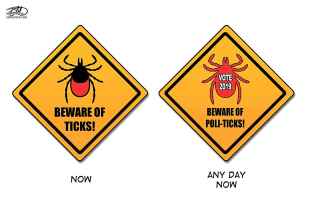Crown urges judge to reject mental-health defence in Sesay attempted-murder trial
Read this article for free:
or
Already have an account? Log in here »
To continue reading, please subscribe:
Monthly Digital Subscription
$0 for the first 4 weeks*
- Enjoy unlimited reading on winnipegfreepress.com
- Read the E-Edition, our digital replica newspaper
- Access News Break, our award-winning app
- Play interactive puzzles
*No charge for 4 weeks then price increases to the regular rate of $19.00 plus GST every four weeks. Offer available to new and qualified returning subscribers only. Cancel any time.
Monthly Digital Subscription
$4.75/week*
- Enjoy unlimited reading on winnipegfreepress.com
- Read the E-Edition, our digital replica newspaper
- Access News Break, our award-winning app
- Play interactive puzzles
*Billed as $19 plus GST every four weeks. Cancel any time.
To continue reading, please subscribe:
Add Free Press access to your Brandon Sun subscription for only an additional
$1 for the first 4 weeks*
*Your next subscription payment will increase by $1.00 and you will be charged $16.99 plus GST for four weeks. After four weeks, your payment will increase to $23.99 plus GST every four weeks.
Read unlimited articles for free today:
or
Already have an account? Log in here »
Hey there, time traveller!
This article was published 23/07/2018 (2701 days ago), so information in it may no longer be current.
A provincial court judge who must decide whether a former university basketball player is not criminally responsible for trying to kill a 20-year-old woman has expressed concerns his lack of medical training means he can’t question the opinion of a forensic psychiatrist.
Junior Sesay pleaded not guilty in a break-in and attempted murder that targeted University of Winnipeg Wesmen basketball player Lena Wenke — who was his brother’s girlfriend and the object of Sesay’s paranoid delusions.
Sesay has argued he’s not criminally responsible for stabbing Wenke multiple times and leaving her for dead in May 2017.

Crown prosecutors argue Sesay knew exactly what he was doing, as he planned his attack and knew it was both legally and morally wrong.
In the early morning hours before he threw a rock through her sliding glass door, burst into her bedroom and unleashed extreme violence, Sesay asked his brother if Wenke was home alone. He carried a knife with him before he left home, leaving a chilling note in his own handwriting: “Wesmen mourn loss of Lena Wenke.”
The medical professionals who treated Sesay after his arrest agreed Sesay believed the stabbing was justified because he was suffering from psychosis, a symptom of his schizophrenia.
But Crown prosecutors painted a picture of a calculated would-be killer as they urged Judge Brian Corrin to reject the not-criminally-responsible defence and find Sesay guilty of all of the charges against him. The opinion of forensic psychiatrist Jeffrey Waldman, who testified for the defence Sesay is eligible for an NCR finding, should be given “little weight,” Crown attorney Colin Soul argued.
“How can I conclude that his methodology was inappropriate when I know nothing about psychiatry, and particularly forensic psychiatry?” Corrin asked. “Even if I was trained as a doctor, I still couldn’t go there.”
“The Crown’s not asking your honour to be a doctor. These are legal tests, not medical tests,” Soul replied.
Prosecutors didn’t take issue with Sesay’s schizophrenia diagnosis, but that alone isn’t enough to find him not criminally responsible under the law. Soul argued Waldman hadn’t considered all of the relevant evidence in the case and took a “short cut” when he concluded Sesay’s schizophrenia symptoms made him believe it wasn’t morally wrong to kill Wenke, who survived the violent attack.
Wenke was dating Sesay’s younger brother, William, and had gotten to know the family by the time Sesay started showing signs of paranoia early last year. All three were members of the U of W basketball program; William Sesay and Wenke returned to play the 2017-18 season.
Junior Sesay became convinced Wenke was participating in a group chat where people he knew, including his ex-girlfriend, were making fun of him and trying to get him to kill himself. After he attacked Wenke in her Dominion Street home around 2:30 a.m. on May 23, 2017, Sesay called his ex-girlfriend while he drove away in a stolen car.
“He called and he said that he killed her, that he killed Lena. He was talking about the group chat and saying, ‘How could you bully somebody that’s suicidal?'” Janel Wyllie-Runner testified during his trial earlier this month.
“There was no group chat.”
Sesay’s defence lawyer, James Wood, argued he should be found not criminally responsible for breaking into Wenke’s house and trying to kill her. He is guilty of theft of a motor vehicle, Wood argued, but not the more serious charge of robbery, for stealing a passerby’s car and fleeing Winnipeg immediately after the attack.
Waldman had testified Sesay should be held criminally responsible for stealing the car, which he did after approaching its owner with a knife, because that wasn’t part of his delusion.

“A person who understands that break-and-enter and attempted murder was against the law may still be NCR if he believed that he was morally justified in doing so,” Wood said. “We don’t dispute that Mr. Sesay appreciated the nature and quality of his acts and that he knew that break-and-enter and attempted murder was legally wrong.
“However, we submit that because of the delusions he suffered at the time, Mr. Sesay believed that stabbing Lena Wenke was morally justified.”
Corrin reserved his decision after hearing lawyers’ closing arguments Monday. As he considers his decision, Sesay’s mother said she hopes the court will recognize the role of mental illness in this case and the steps Sesay’s family took to try to get him the help he needed.
Phebean Hollist-Sesay was present in court Monday, and afterward said Sesay is “feeling much, much better” now that he’s receiving proper treatment and medication.
“It’s traumatic for even me,” she said, describing the months she spent seeing the escalation of paranoia and violence in her son. “I was taking care of him, I was so very much sad.”
She still questions why, despite her efforts trying to get medical help for her son, something couldn’t have been done to prevent the violence. She had called police on him several times after he became violent in her home, and in April 2017, she called to have him taken to the hospital.
He was prescribed medication and released, later telling his mother the medication “triggered” his symptoms, she said.
“When I talked to the police, they said, well, he’s taking his medication, he’s going to see his doctor, he’s having an appointment. I said, but I want them to admit him. If they admit him, they will prevent. They said, well, there’s nothing they can do,” Hollist-Sesay said.
katie.may@freepress.mb.ca
Twitter: @thatkatiemay

Katie May is a general-assignment reporter for the Free Press.
Our newsroom depends on a growing audience of readers to power our journalism. If you are not a paid reader, please consider becoming a subscriber.
Our newsroom depends on its audience of readers to power our journalism. Thank you for your support.









